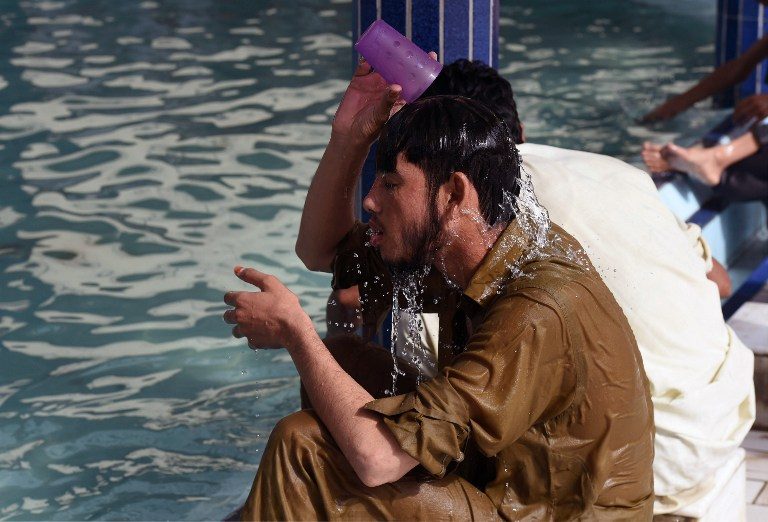SUMMARY
This is AI generated summarization, which may have errors. For context, always refer to the full article.

KARACHI, Pakistan – The death toll from Pakistan’s killer heatwave rose to 800 on Thursday, June 25, as cloud cover and lower temperatures brought some relief to the worst-hit city Karachi.
Morgues and gravediggers in Karachi, Pakistan’s largest city and economic hub, have struggled to keep up with the flow of bodies since the scorching temperatures began last weekend.
Hospitals have been on a crisis footing and dedicated heatstroke treatment centers have been set up around the city to treat the thousands affected by heatstroke and dehydration.
“The death toll has climbed to 800 according to the data collected till midnight,” provincial health secretary Saeed Mangnejo told Agence France-Presse, warning that more deaths could be announced later in the day.
After days of temperatures hovering at highs in the mid-40s Celsius (around 110 Fahrenheit), sea breezes and cloud cover have brought respite to the port city in the last two days.
The Met Office forecast temperatures of around 34ºC on Thursday, with 75% cloud cover.
Pakistan’s largest charity, Edhi Foundation, said their mortuaries in the city had received such an influx of bodies that they were struggling to keep them properly chilled.
Victims’ families have also faced challenges in burying their dead, as grave-diggers have struggled to keep up with demand in the scorching heat.
While temperatures of 45ºC and higher are not uncommon in parts of inland Pakistan, Karachi normally remains cooler thanks to its coastal location.
This year’s heatwave has also coincided with the start of the Islamic fasting month of Ramadan, during which millions of devout Pakistanis abstain from food and drink from sunrise to sunset.
Under Pakistani law, it is illegal for Muslims to eat or drink in public during daylight hours in Ramadan.
The majority of the deaths in Karachi have been among the poor and manual laborers who toil outdoors, prompting clerics to urge those at risk of heatstroke not to fast.
The situation has not been helped by power cuts – a regular feature of life in Pakistan – which have stopped fans and air conditioners from working and interrupted Karachi’s water supply. – Rappler.com
Add a comment
How does this make you feel?
There are no comments yet. Add your comment to start the conversation.